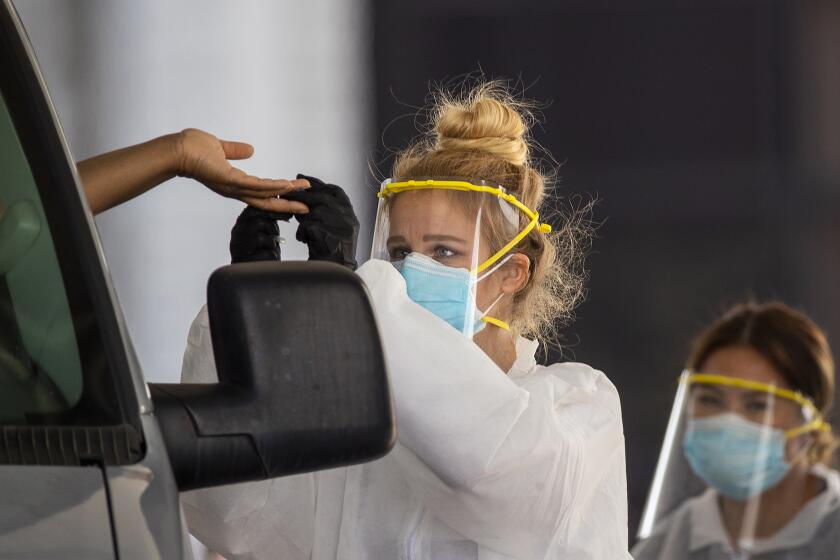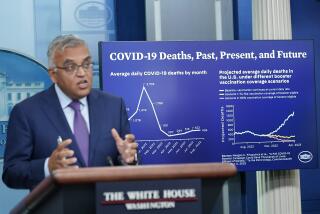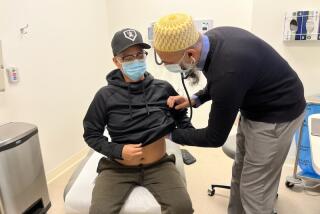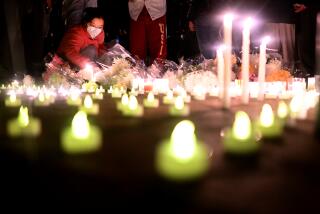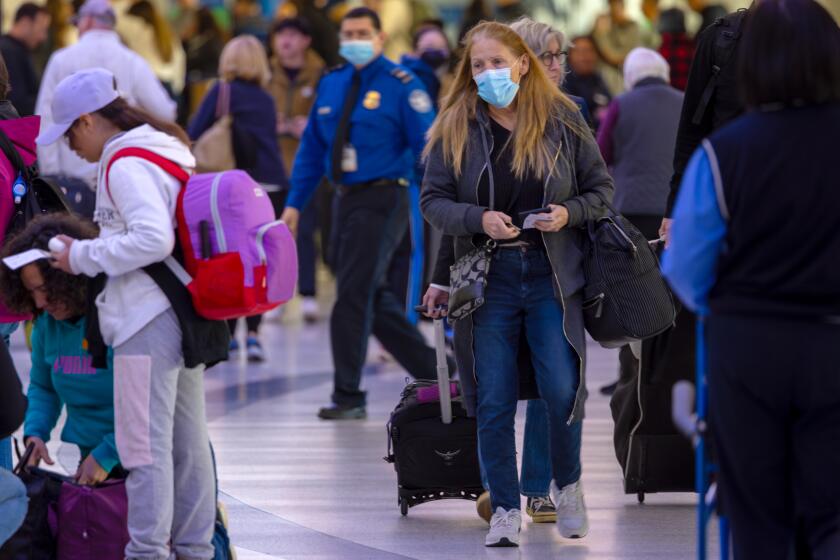The scarlet C: Coronavirus survivors face the stigma and discrimination
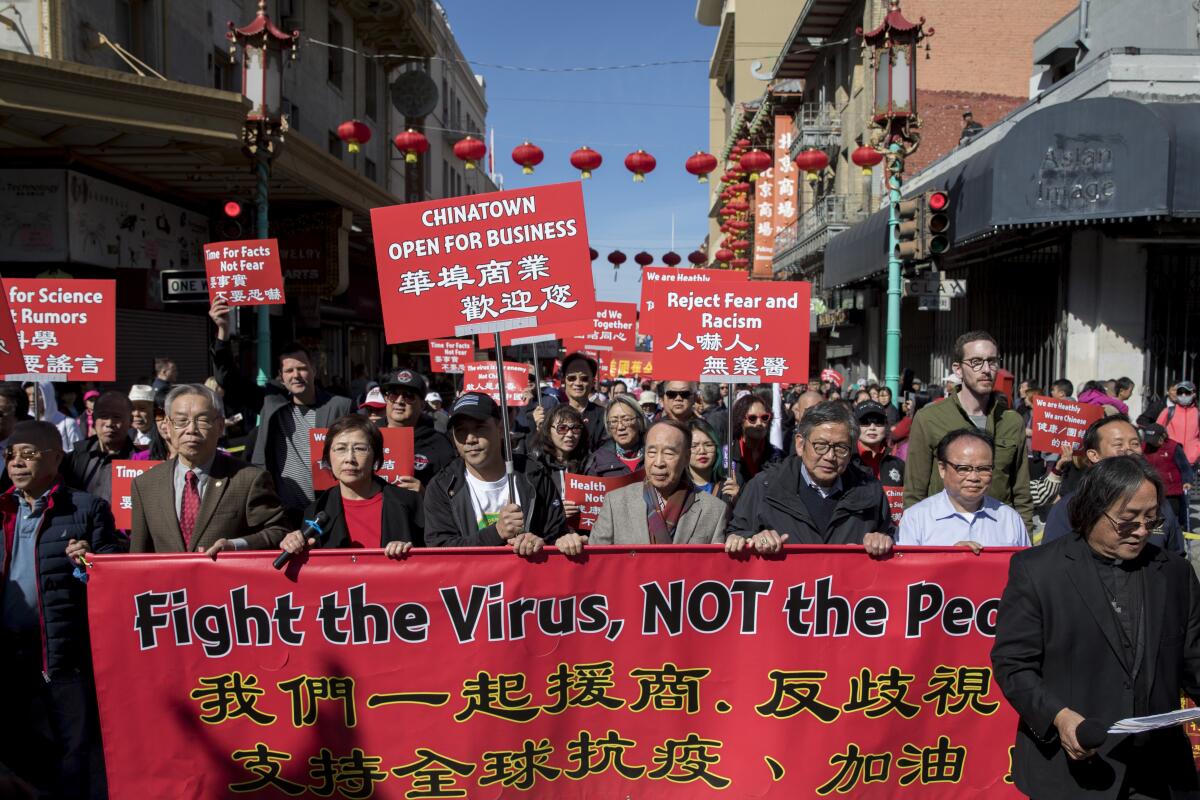
Customers boycott a pharmacy. People scream at a family on the street. A man has trouble summoning an ambulance to his home.
There’s a common thread linking all these stories: fear of COVID-19. In the face of a virus that is both deadly and highly contagious, it raises a question: When do social safeguards against the novel coronavirus mutate into their own contagion of fear and loathing?
The pandemic’s origins in China have already given rise to a frightening spate of racist outbursts against Asian immigrants and Asian Americans. Beyond that, fear has led to a shunning of some of its victims, even when they needed help.
“It felt like we had the scarlet letter ‘C’ on the house,” Anne Edmunds Aguirre said after a traumatic night trying to summon help to her father’s house in New Orleans.
J. Ollie Edmunds Jr., 79, survived COVID-19 and was sent home by a New Orleans hospital. When he fell and summoned help from the local fire department, the department refused to come. Aguirre said firefighters had been to the house before, and knew Edmunds’ history with COVID-19. The family was told to dial 911, and then had to wait six hours for paramedics to arrive.
“The general public still has that fear,” she said. “Unless they trust you, they are going to be reluctant – ‘You had that virus, I don’t want to come.’”
The pandemic’s toll: Lives lost in California
Hundreds of people have died in California due to the COVID-19 pandemic. These are some of their stories.
In San Diego County, the COVID-19 death of a young pharmacy worker touched off a wave of fear and rumors through a tight-knit Arabic community that the small pharmacy served. When the pharmacy owner announced he was ill, rumors surfaced on social media that he was infected with coronavirus, and even had died. He tried to dispel the rumors and reassure customers; the replies were heated and accusatory.
“Let’s worry more about our health, especially the ‘elders,’ than worrying about reputation,” read one of the more tempered posts on the pharmacy’s Facebook page.
“Go to my Facebook and see the fight, see the war against me right now,” said the pharmacy owner, who spoke on the condition that he not be named for fear of further business losses. “It hit our business so bad. I lost half of my business.”
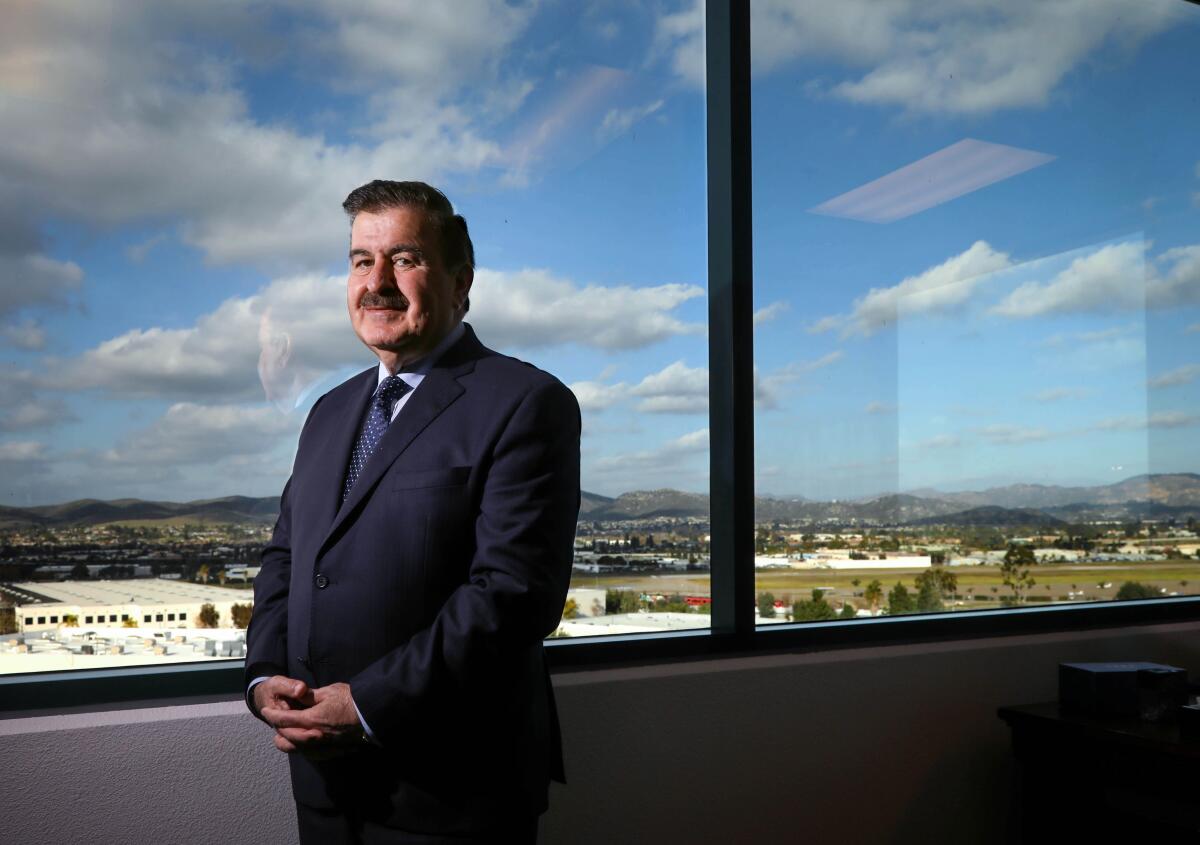
A community leader, Dr. Noori Barka, told a local television station he “was trying to make a big deal” about his belief COVID-19 cases were connected to the pharmacy “because I felt something was wrong.” He said he was afraid the pharmacy would infect other people.
These are hardly isolated instances of community fear.
A San Francisco area family that lost one member to COVID-19 and saw two others survive the virus kept that information to themselves. But taking a family stroll while wearing masks in mid-March, before such a sight became common, was enough to bring a woman out of her house, shouting.
“She started to yell at them,” said one family member, who did not want to have his name published because of the sensitivity of the situation. “Something along the lines of, ‘You’re freaking us all out! Why are you wearing masks? Take your masks off!”
In Indiana, some police departments say they will no longer deliver lifesaving doses of Naloxone to those overdosed on opioids, because it is administered through the nose, though the state director of emergency medical services, Dr. Michael Kaufmann, issued a directive calling the risk of coronavirus exposure “unlikely.”
At the same time, there are many instances of people and communities working together and overcoming biases, said Dr. Richard Marlink, director of the Rutgers Global Health Institute and a veteran of HIV/AIDS research and public policy. “How we respond to the pandemic is a measure of who we are, a measure of our goodness,” Marlink said. “The pressure we should put on ourselves is, this is an opportunity to be human.”
Indiana University sociologist Brea Louise Perry began studying public backlash in the early days of the pandemic, as politicians such as President Trump framed the global threat as the “Chinese virus” and Asian Americans found themselves isolated, pilloried and asked to sit apart in public restaurants.
As her team conducts a study of the stigmas surrounding COVID-19, Perry is already very familiar with the underlying emotional forces at play: fear, uncertainty, unpredictability and perception of danger. They also feed stigmas borne by those with mental illness, obesity, and especially threats to the public health, such as HIV.
“As humans, we try to manufacture a sense of control,” Perry said. “We want to be able to attribute responsibility, because it’s really disorienting and stressful to think that, ‘Oh, just anything can happen to me ... or I could get this too no matter what I do to try to control it.’
“But then it goes wrong when we turn it on other people in the form of stigma,” she said.
But stigmatization can also be a mechanism for social control.
California Gov. Gavin Newsom, for instance, repeatedly has said he expects his orders for business closures, home quarantine and social distancing to be enforced by society at large.
“There’s a social contract here. People I think recognize the need to do more and to meet this moment. People will self-regulate their behavior,” he said at a March briefing outlining his reasons for not employing police or military enforcement. “We will have social pressure and that will encourage people to do the right thing.
“Social pressure is leading to social distancing, social recognition,” Newsom said. “And the socialization of this disease is leading people to change behavior.”
A new study by Stanford University, using antibody blood tests, estimates that the number of cases in Santa Clara County may be 50 to 85 times greater than what was previously known.
It can work in other ways.
Outside Baton Rouge, La., police have been unable to force a Pentecostal church to stop large services despite a statewide order prohibiting gatherings of 10 or more, and a pile of unheeded civil infractions.
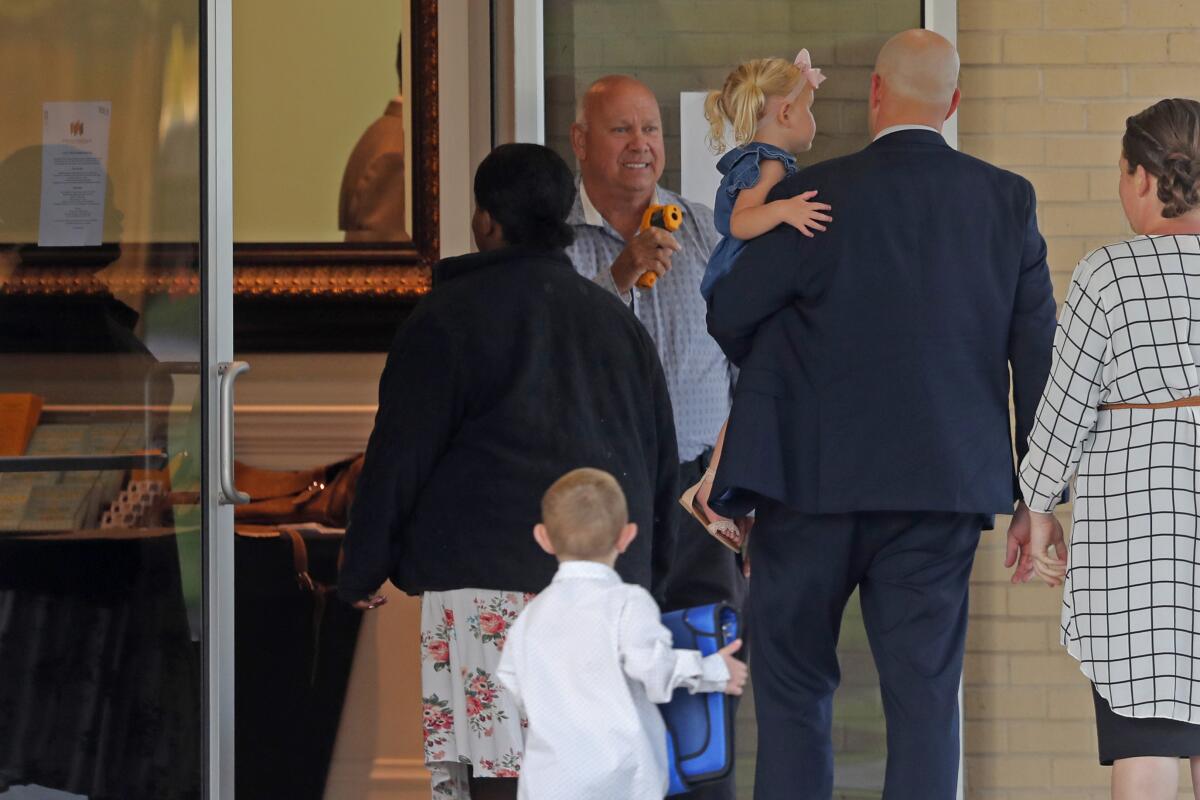
The Rev. Tony Spell, pastor of Life Tabernacle Church, accused police of public shaming, sending in a plainclothes officer with a body cam to record Easter services, then sharing that footage with a local television station.
He sends more than two dozen buses to bring worshipers to services from surrounding parishes. “People are really being bullied and intimidated not to get on my buses,” Spell said.
The church is not untouched by the virus. Head usher Harold Orillion, 78, died earlier this week of what the coroner said was COVID-19.
Now Spell’s attorney is hospitalized, on oxygen and his lungs struggling after several days of fever. Jeff Wittenbrink, 59, didn’t blame the church for his illness.
“I went to Albertsons. I went to Sam’s, Walmart, Lowe’s, my local hardware store, Sprouts, Rouses — I can’t even tell you all the places” before he got sick, Wittenbrink said Friday from his hospital bed.
He objected to efforts to pressure Spell to close the church.
“They’re doing the same thing they were trying to do to Trump initially, which is find some grandpa and try to pin it on him that he died,” Wittenbrink said. “They’ve been excoriating him from the beginning. He’s just a guy that’s trying to feed his flock…. Why do they want to shame people?”
Perry cautioned that public pressure policies often fail, either turning out to be ineffective or backfiring so badly that individuals avoid the care and treatment they need. She pointed to the effect of public shaming surrounding obesity.
“If stigma worked to reduce obesity, there would be no more obese people because there’s so much fat shaming, right?” Perry said. “But really, what scientific research suggests is that overweight people who feel more shameful and perceive themselves as more stigmatized are actually less likely to make behavioral changes.”
In South Africa, already, public health officials have raised concerns that residents falling ill will avoid medical treatment for fear of being shunned as coronavirus carriers.
Global concern over COVID-19-associated stigmas prompted the science journal Nature to publish an editorial acknowledging and criticizing its own linking of the novel coronavirus with China and the harm in singling out any group or people. In particular, it bemoaned the treatment of some 700,000 Chinese students studying abroad in the United States, United Kingdom and Australia.
“We must all do everything we can to avoid and reduce stigma; not associate COVID-19 with particular groups of people or places; and emphasize that viruses do not discriminate — we are all at risk,” the journal editors wrote.
More to Read
Start your day right
Sign up for Essential California for news, features and recommendations from the L.A. Times and beyond in your inbox six days a week.
You may occasionally receive promotional content from the Los Angeles Times.
